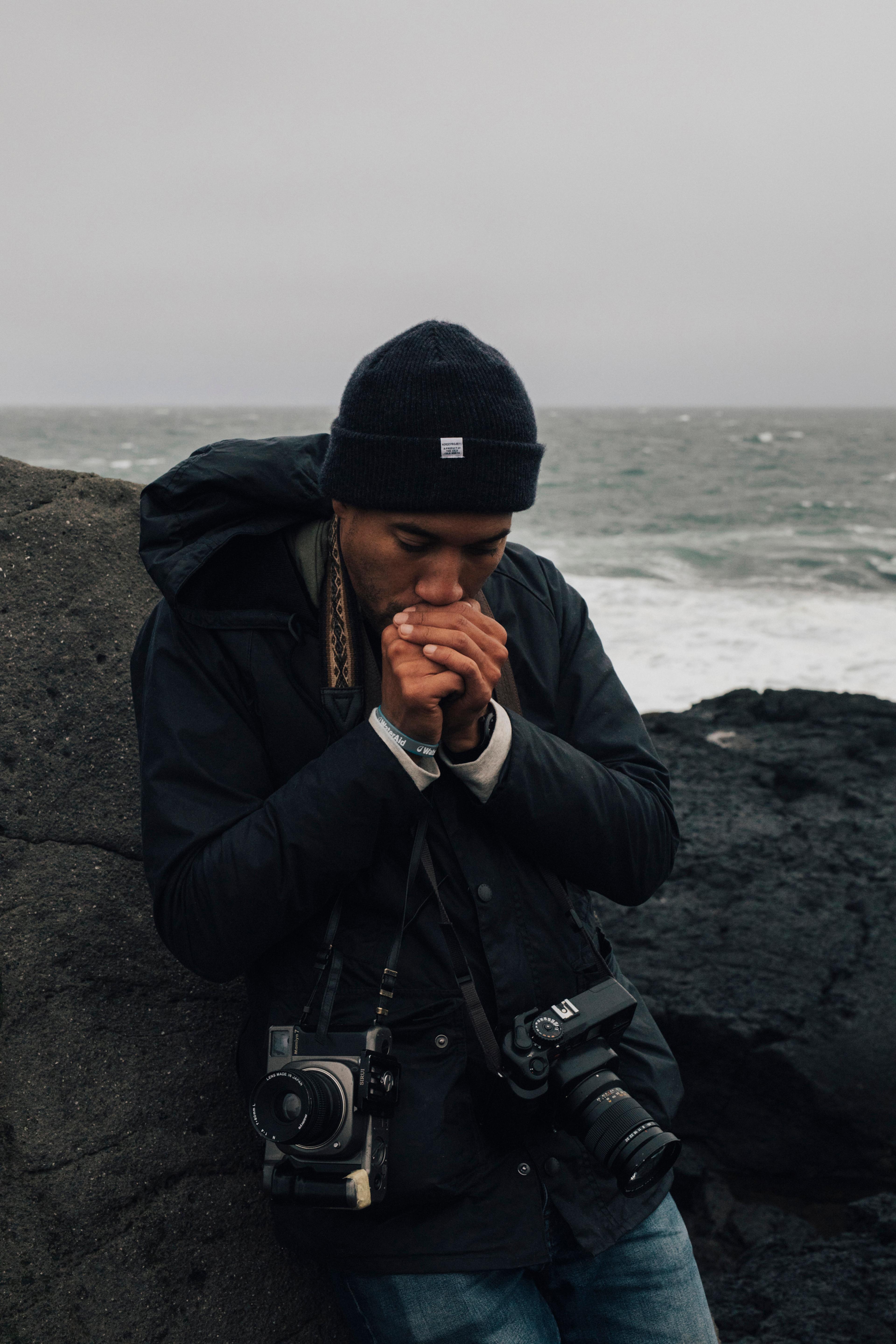Fotografiska Academy: Documentary Photography | Fully Booked
Between art and responsibility
Image credit: © Mustafah Abdulaziz, Water pump for 800 people. Osukputu, Nigeria, 2015
Led by photographer Mustafah Abdulaziz, this hands-on course explores the meeting point between creative expression and ethical responsibility. You develop projects that engage with people, places, and challenges, while building a personal visual language that is both sensitive and critically informed.
Through seminars, hands-on workshops and critiques, you learn research methods, narrative construction and strategies for presenting work across exhibitions, publications and digital media. Case studies of landmark and contemporary projects provide context for how images shape public understanding.
By the end, you have developed your own project through hands-on practice and guided feedback.
The course takes inspiration from the work of Helga Paris, and her exhibition für uns, which is currently on view at Fotografiska Berlin. Her photography shows how documentary practice can carry an artistic vision while remaining socially relevant.
This program is aimed at emerging and mid-career photographers, artists, students, and anyone with basic photography skills who wants to deepen their practice through documentary work. We are asking you to bring an ongoing project or an idea that you wish to develop.
See below for more information and the course structure.
ABOUT THE HOST
Mustafah Abdulaziz (b. 1986, New York City) is a photographer & director based between Berlin and London. For over fourteen years his work has focused on the human impact on climate change by bringing vital stories to the public through large-scale installations around the world. He is the winner of the Leica Oskar Barnack Award, a grantee of National Geographic, and a former fellow of the Alicia Patterson and Bertha Foundations. He is a regular contributor to The New York Times, TIME, and Der Spiegel. His work has been acquired by the Mercedes-Benz Art Collection in Stuttgart and the National Portrait Gallery in London. His first short film, Women Are Beautiful, debuted in Berlin in 2025.

Image credit: © Robbie Lawrence
DETAILED INFORMATION
FOR WHOM THIS COURSE IS SUITABLE
The course is aimed atemerging and mid-career photographers, artists, students, and anyone with basic photography skills who wants to deepen their practice through documentary work. We are asking you to bring an ongoing project or an idea that you wish to develop.
COURSE TAKEWAYS
• An understanding of documentary photography and the relationship between creative expression and ethical responsibility
• Learning how to conceptualize, plan and creatively problem solve your creative work
• Developing a personal visual language that is both sensitive and critically informed
• Learn research methods, narrative construction and strategies for presenting work across media and exhibitions
EQUIPMENT NEEDED
• A DSLR camera
• 1 pen
• 1 notebook (capable of being carried on your person while photographing)
OPTIONAL, BUT GOOD TO HAVE
• 1 photo project; if you have a series or portfolio already, both a high-resolution PDF of the work or work prints of the project in the A5 format in matte paper only. No glossy, please
• 1 copy of A Dictionary of Color Combinations, Japanese Edition, Volume 1 by Sanzo Wada
• 1 favorite photo book for each class (ideally always a different one)
Cancellation policy
More than 7 days before the course start date: Full refund.
Less than 7 days before the course start date: No refund.
Refunds will be processed within 14 business days of receiving a cancellation request or notification of course cancellation.
CONTACT
For any further questions, feel free to reach out to us at programming.berlin@fotografiska.com. Our team is happy to assist you!
COURSE STRUCTURE
November 3 – Introduction& Presentation of Water
Introduction to the course and presentation of Mustafah’s long-term documentary project Water, including a discussion of the concept, creative process, technical approach, challenges faced, and his personal philosophy of the photographic act. The class will conclude with an outline of the remaining course structure and a Q&A session about Mustafah’s work and career. You will be assigned to view material and to visit Helga Paris’ exhibition für uns.
November 10 – Review of Photography Project & Next Steps
Review of the photograph project you brought and individual goals for the next steps in your development. This class will focus on giving you practical feedback and guidance. For this, prints of your photo projectin A5 (mattepaper) are preferred but you should have the same project in PDF format as backup. As homework, you will be given one photographic assignment to complete before the next session.
November 17 – Assignment Analysis & Visual Language Theory
First half of class will be about the results from the photographic assignment. The second half will be on visual language theory. You will be assigned the task of making a project plan based off learnings from the first three course days and present it in the following week.
November 24 – Review, Film Screening & Wrap-Up at Bar Verōnika
Review of your project plans that developed during the course and discussion of all work completed throughout. Screening of Mustafah’s short film Women Are Beautiful, followed by a conversation on the filmmaking process and how you can apply these lessons to your own projects.
The course will conclude with a celebration, drinksand snacks at Bar Verōnika, offering a relaxed moment to connect with other participants and reflect together on the course experience.